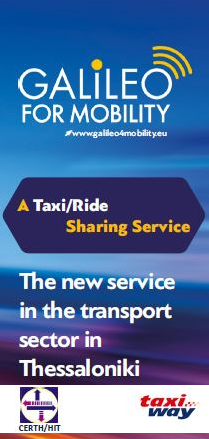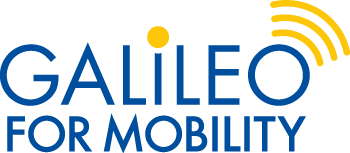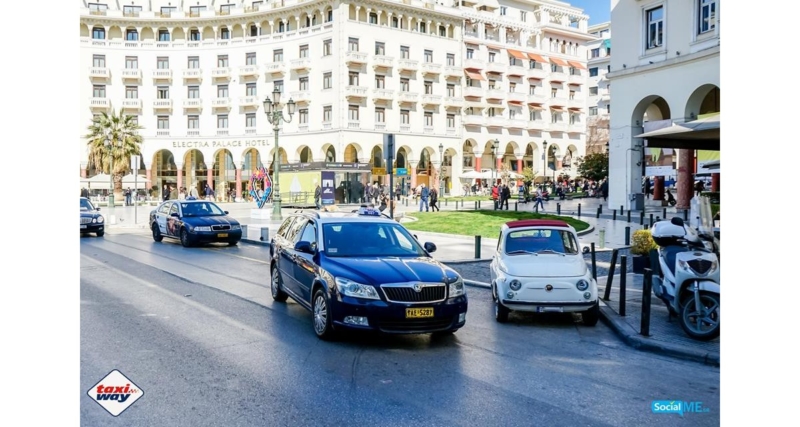 The first Galileo 4 Mobility has officially kicked off! Launched in early May, this pilot is led by research institute CERTH/HIT and transportation company Taxiway and aims to fight congestion in Thessaloniki’s city centre through a taxi-sharing service. We spoke to Josep Maria Salanova Grau, Associate Researcher at CERTH/HIT, and Theodoros Stavridis, president of Taxiway, about the ins and outs of the pilot in Thessaloniki.
The first Galileo 4 Mobility has officially kicked off! Launched in early May, this pilot is led by research institute CERTH/HIT and transportation company Taxiway and aims to fight congestion in Thessaloniki’s city centre through a taxi-sharing service. We spoke to Josep Maria Salanova Grau, Associate Researcher at CERTH/HIT, and Theodoros Stavridis, president of Taxiway, about the ins and outs of the pilot in Thessaloniki.
Can you briefly discuss the pilot, and elaborate on how the service will benefit from Galileo technology?
The pilot in Thessaloniki aims at reducing traffic congestion in the city centre by reducing the amount of commuting trips from two zones located east from the city (Kalamaria and Thermi) to the centre. The mobility scheme to be tested is based on a taxi-sharing service provided by Taxiway: a set of Taxiway vehicles will collect passengers from the two regions to transport them to their work in the city centre and back to their home, hereby aggregating the trip origins and destinations as much as possible. So, the pilot aims at concentrating as many trips as possible in as few vehicles as possible.
In the pilot, geopositioning of taxis and passengers will be based on smart devices equipped in taxis and on mobile phones of pilot participants. The taxi-sharing service will exploit the benefits of Galileo technology in order to accelerate pick-up of passengers by taxi drivers, due to better location accuracy of both taxi drivers and passengers. Especially in busy urban areas, we expect Galileo technology to improve location accuracy and thus the service.
What is the current status of the pilot, and what are the next steps?
The technological developments have been put in place, including a dedicated app and back-office, as well as a taxi dispatching centre that will be used for the provision of the service. With regards to the participants, various campaigns were held during the last moths aiming at collecting interest of potential users. In April 2019, an initial user assessment was made through a questionnaire which examined users’ travel behaviour, preferences and expectations.
Before the pilot, we had 190 registered potential users. The actual users were chosen depending on their smartphone technology, the mode they use today and their desired origin/destination location and time. By gathering details about people’s desired route, we clustered users per route, and time. Other steps that were taken were the signing of contracts between Taxiway and the selected users and taxi drivers that will participate in the first pilot test.
The first pilot period started on 6 May and will run until July. CERTH/HIT is responsible for the proper operation of the pilot and the user surveillance-assistance. Finally, a final assessment about the acceptance of the service will be carried out after the end of the pilot period, during August 2019.
Can you explain how the users’ experience is improved through the service?
Within the suburban area, there is limited possibility to reach the city centre without using a car. On the other hand, using a private car is costly and time-consuming, due to the high level of congestion in the city centre and the limited availability of parking spaces. The taxi-sharing service can provide a comfortable and cost-effective ‘home-work-home’ solution to the suburban area’s residents. Users can leave their car at home and will not experience problems such as the difficulty of finding a parking spot. The service is customised to each user – they can create a profile via the mobile application and state the days, the hours as well as the origin-destination for the desired trip. Route information is available in real time during the use of application.
What do you think is the view of the city authority of the pilot?
We have actively engaged with local authorities to develop a user engagement strategy in order to achieve an early involvement of the local community. Workshops and meetings with the city of Thessaloniki as well as the municipalities of Kalamaria and Thermi were organised by CERTH/HIT focused on how the pilot could contribute to the mobility sector in Thessaloniki and how the local authorities can help in the dissemination of the project. The local authorities have contributed enthusiastically in mentioning how the new mobility service will facilitate the trips of citizens of Kalamaria and Thermi to the city centre. The pilot of Thessaloniki was communicated through the website and social media of the local authorities as well as through local newspapers and TV channels. Also, the pilot team has distributed leaflets about the taxi sharing pilot to potential users during local events held in December and January and pilot leaflets were also available at info point in the city. Finally, invitations to participate to the pilot were sent to target groups such as local enterprises.
Were there any challenges faced when setting up the pilot in terms of regulations, technology, or other?
Since the pickup of customers from different points in one trip is forbidden by Greek regulations, we had to assure the legitimacy of the process. For this reason, contracts have been signed between Taxiway and the participants in the pilot.
A second challenge was the determination of the trip fare. It was important to define an appealing fare for the user. A Value of Time (VoT) and Willingnes to Pay study via questionnaires delivered to potential users was carried out to examine their expectations in terms of costs. Based on this the fare was set.
Last but not least, we have to mention the mistrust of some taxi drivers who believe that the new taxi-sharing service will reduce the economic benefits of other drivers, since it aggregates more trips in one. Many discussions were carried out to persuade them that the taxi-sharing service will increase the use of taxi as it is addressed to users of private cars and not to those that already use the taxi as transportation mode.
What will be done with the insights gathered from the pilot?
The feedback and the final assessment of the pilot is expected to contribute to general improvement of the service. The possibility of a second operation period, during October-November 2019, which will integrate the lessons learned from the first pilot period, is under discussion.
To conclude, during the next years, much will be done to change image of (public) transport in Thessaloniki. The brand new metro system is due to be fully operational in the coming years, and a unified eco-transport-system that includes both public and private stakeholders, will hopefully turn the city towards the use of more environmental friendly transportation modes discouraging the private car use. The Greek pilot of Galileo 4 Mobility is a precursor of this trend, integrating the sharing economy concept into the Thessaloniki transport sector.
 This project has received funding from the European Global Navigation Satellite Systems Agency under grant agreement No 776381
This project has received funding from the European Global Navigation Satellite Systems Agency under grant agreement No 776381

